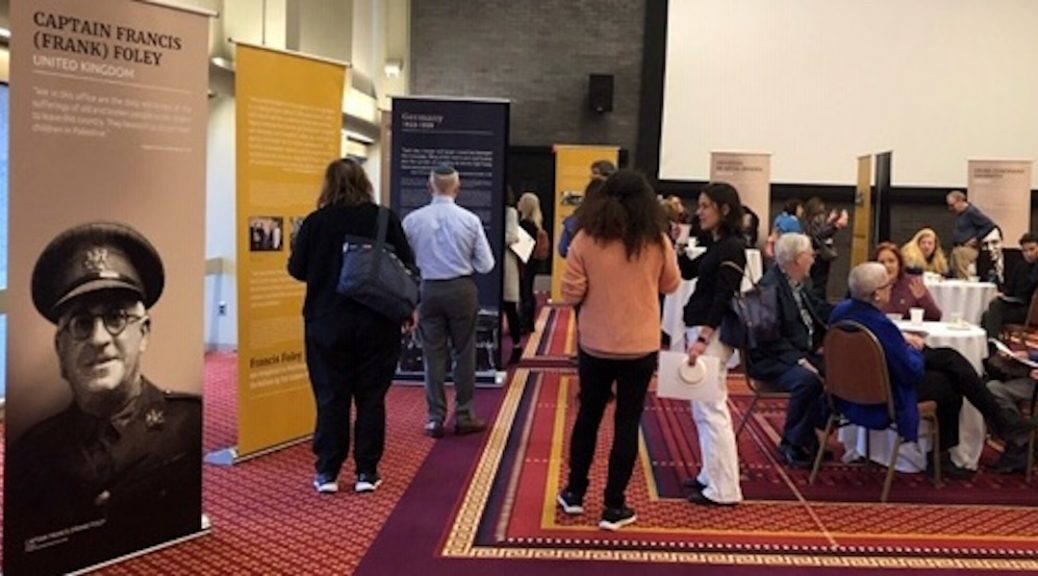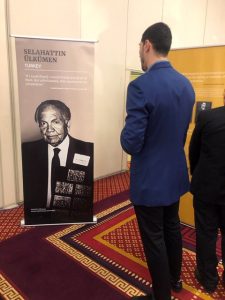Tallulah Bark-Huss (COM ‘21) interviewed Dr. Katharina von Kalllenbach, the speaker for the BU Jewish Studies Forum On February 18 at 2:30 PM at the Elie Wiesel Center.
The title of Dr. von Kalllenbach’s talk is Der Nestbeschmutzer: Guilt and Transformation in Post-War German Discourse, and she will delve into what it means to confront your own country’s wrongdoings.
The German word, “Nestsbeschmutzer,” literally means a person who soils the nest. In English, one might say, “whistleblower,” “leaker,” or “mole.” It refers to someone who sheds light on, or is critical of, the indiscretions of their own culture. The word refers to “dirt” and evokes a need to cleanse the people who do the soiling. Calling someone out for soiling the nest implies that if they don’t talk about the subject, things will remain clean.
The use of words such as “dirt” and “cleansing” was used in post-Holocaust discourse when Germany had to face the question: What do we do with all these Nazis? The Nazis also saw the Holocaust as an act of ethnic purification. Dr. von Kellenbach says she wants to think about these images and this language when discussing coming to terms with guilt. While working on her book on the mark of Cain, she wondered, “What is it with this stain that can’t be washed off? How can I think about guilt in a way that does not cleanse it out of history?” She wants to investigate the trope of brushing the past under the rug as she finds this idea is still very much relevant today.
Today, the same cleansing language is used. However, Dr. Von Kellenbach thinks it’s important to use a different metaphor and instead prefers to say “composting” when thinking about guilt. In composting, the dirt isn’t brushed away but is used to create something new.
Dr. von Kellenbach thinks this conversation is important to have, especially for a younger audience, because the desire for purification on college campuses is so present. “There is a lot of puritanism [on college campuses]. [There is a lot of] political correctness and who we declare to be ‘dirt.’ A lot of desire to be pure is powerfully present on campus.”
But, beyond college campuses, the political climates in America and other countries are frighteningly familiar. “We have Charlottesville where people run around with Nazi paraphernalia as if the past 70 years hadn’t happened. And in Germany, it’s as if we’re right back at square one.” The country is in the midst of a political crisis. Its political state is fragmenting more and more as became evident when Annegret Kramp-Karrenbauer, Chancellor Angela Merkel’s chosen successor, resigned this past week. According to a Vox article, “The center-right CDU voted with the far-right, anti-immigrant, anti-Islam Alternative for Deutschland (AfD) to install a member of the smaller, pro-business Free Democrats as state premier.” This surprising turn of events points to the German far-right faction’s growth and foreshadows Germany’s uncertain future.
Dr. Katharina von Kellenbach, Professor of Religious Studies at St. Mary’s College of Maryland and the Corcoran Visiting Chair in Christian-Jewish-Relations at Boston College 2019-2020, says the current political climate in Germany evokes the ghosts of the country’s stained past and points to the lessons Germany has not learned. For the last twenty years, her research has focused on the perpetrator-side of the Holocaust.




![PHOTO-2020-02-10-18-36-03[2]](/ewcjs/files/2020/02/PHOTO-2020-02-10-18-36-032-225x300.jpg) International Holocaust Remembrance Day, which occurs tomorrow, January 27, marks the 75th anniversary of the liberation of Auschwitz, the largest Nazi death camp during World War II. Close to one million Jews were murdered there. Indeed it was the State of Israel in 2005 that took the initiative at the United Nations to establish this day of global remembrance in order to ensure that the nations of the world will honor the memory of Holocaust victims while rejecting Holocaust denial and commit to preventing future genocides. Indeed, It is a tribute to the tenacity of Israeli diplomats led by Roni Adam that the UN finally gave its approval to International Holocaust Remembrance Day, which was initially met with resistance in the General Assembly.
International Holocaust Remembrance Day, which occurs tomorrow, January 27, marks the 75th anniversary of the liberation of Auschwitz, the largest Nazi death camp during World War II. Close to one million Jews were murdered there. Indeed it was the State of Israel in 2005 that took the initiative at the United Nations to establish this day of global remembrance in order to ensure that the nations of the world will honor the memory of Holocaust victims while rejecting Holocaust denial and commit to preventing future genocides. Indeed, It is a tribute to the tenacity of Israeli diplomats led by Roni Adam that the UN finally gave its approval to International Holocaust Remembrance Day, which was initially met with resistance in the General Assembly. 